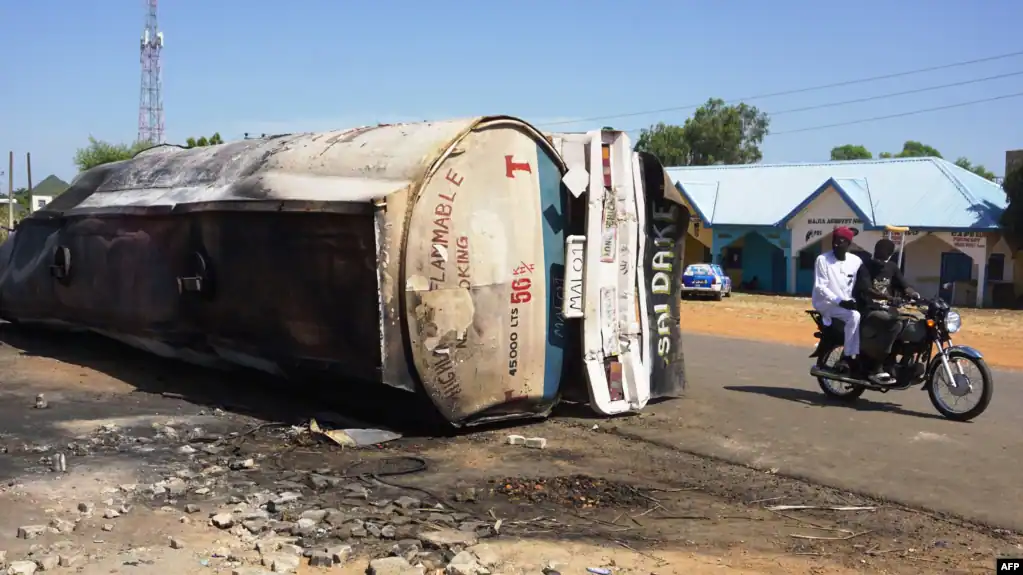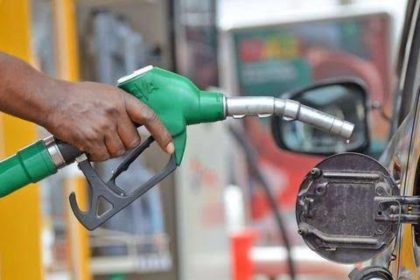Following a tragic tanker accident in Jigawa state that claimed over 140 lives, Nigeria’s President Bola Tinubu has announced plans to comprehensively review safety protocols for the transportation of gasoline.
The incident, which saw a tanker crash in the village of Majiya before igniting a fierce explosion, has prompted urgent calls for reform amid growing skepticism about the government’s commitment to enforcing safety standards.
The accident occurred on Wednesday, as locals crowded around the wreckage, attempting to collect spilled fuel when the tanker exploded, unleashing a deadly fireball that injured many others. Tinubu’s swift declaration for a rigorous review of transportation safety protocols comes as a response to public outcry and an escalating pattern of similar incidents throughout Nigeria.
While the president vowed to partner with various state authorities to implement necessary regulations, observers question whether this initiative will yield real change. Economic analyst Eze Onyekpere expressed doubt about the government’s proactive planning in addressing the transportation of hazardous materials.
“It is a very unfortunate situation,” he stated. “The leadership of the country has not been proactive about planning for transporting crude oil or refined petroleum.”
The recent disaster follows another deadly explosion just a month prior, when a tanker collided with a truck in Niger state, resulting in 48 fatalities. The repeated tragedies underscore the urgent need for improved regulation in Nigeria, where poorly maintained roads and lax enforcement of existing transport measures contribute to a high incidence of road accidents involving tankers.
In an effort to curb this trend, President Tinubu has instructed the Federal Road Safety Corps (FRSC) to intensify enforcement of already established road transport protocols. Measures slated for reinforcement include regulations on night travels and official patrols, aimed at ensuring the safe transport of fuel across the nation.
Energy expert Chukudi Victor Odoeme welcomed the proposed measures, but was quick to highlight concerns about enforcement. “The federal government thinking at this point that it’s time to put policies in place is a good one,” Odoeme remarked. “However, it has to do with enforcement. Load limits have always been there, but they have never been enforced.”
Nigeria’s extensive network of 5,000 kilometers (3,100 miles) of oil pipelines, often vulnerable to vandalism, means that the majority of fuel transportation relies on tankers. This reliance, compounded by rampant neglect of road conditions, presents perilous risks for citizens. Onyekpere pointed out that securing and maintaining these pipelines would provide a safer and more economical transportation alternative, reducing the likelihood of catastrophic incidents such as the recent explosion in Jigawa.
The grim statistics speak for themselves: in 2020, Nigeria recorded over 1,500 tanker accidents that resulted in more than 500 fatalities, according to FRSC data. The high stakes of fuel transportation, coupled with ineffective regulation, are a lethal combination that has drawn the ire of the public and advocates alike.
In response to the heartbreak and devastation witnessed in Jigawa, the president dispatched top government officials, including ministers of defense and transportation, to the crash site, alongside medical supplies and food aid. However, as Nigeria mourns, a critical question remains: Can the government turn words into action when it comes to safety reform?
As the nation grapples with the aftermath of this tragedy, families of the victims demand accountability and robust measures to ensure that such a disaster never occurs again. Critics argue that without a serious commitment to improving safety protocols and enforcing regulations, numerous lives will remain at risk amid a cycle of negligence.
The government’s commitment to addressing these pressing issues will soon be put to the test. Will Nigeria learn from its painful history, or will these assurances fade into another chapter of unfulfilled promises? As discussions evolve around the proposed changes, the nation watches closely, hoping for a safer future on its roads.
With lives on the line, the stakes have never been higher for Nigeria’s administration as the eyes of the world remain fixed on its response to this tragedy.




